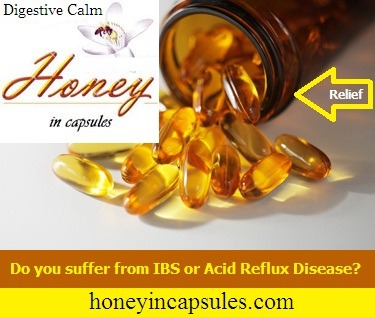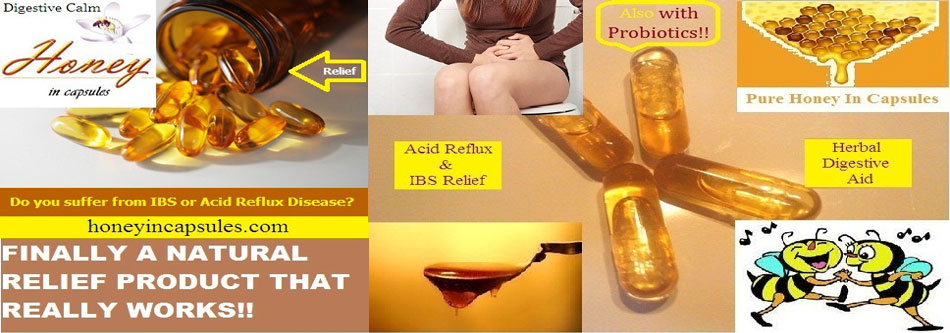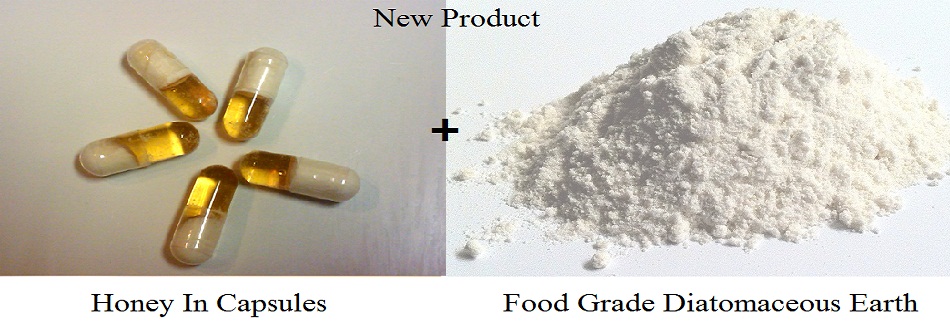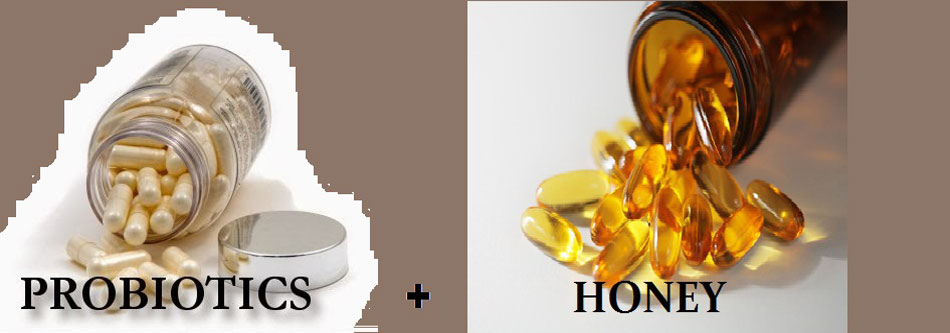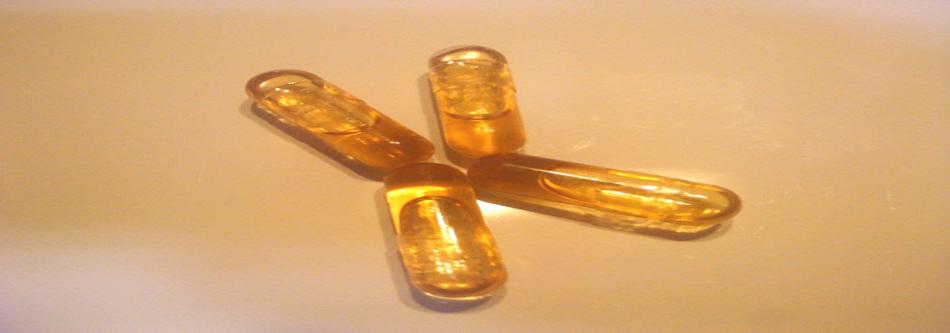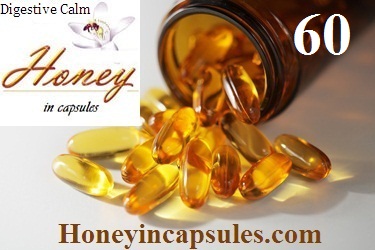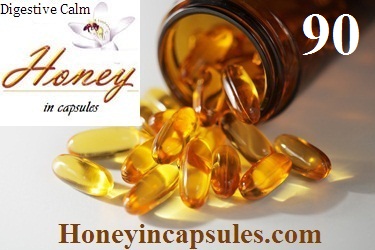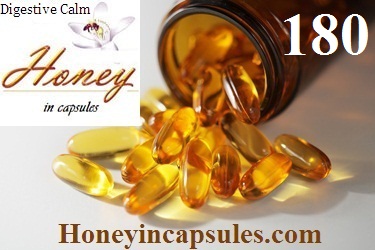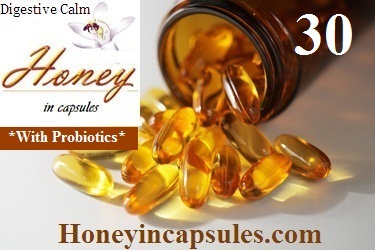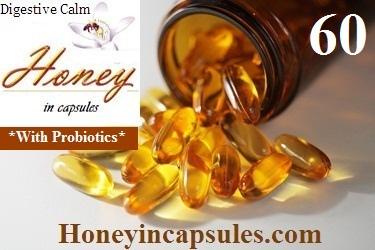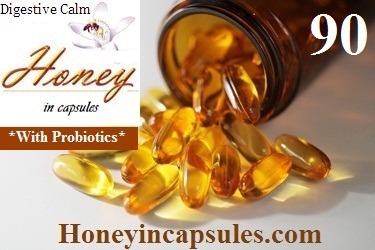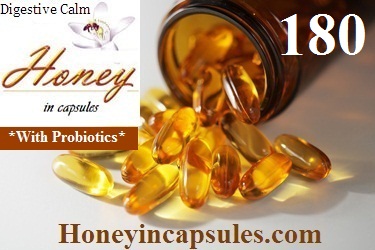Welcome to your website!
How can we serve you and help make your life better?
- Honey Health Benefits
Website – A place to purchase a variety type of Honey in Capsules for those who suffer from Gastrointestinal disorders and Digestive issues.
Honey improves digestion and reduces many gastrointestinal disorders. We now offer two types of honey for our capsules and your use. Grade A Clover Honey or Raw Local Honey straight from the farm! Click here for more details! Please specify your honey choice at check out.
The antibacterial properties of honey can be very effective in fighting bacteria, even against some strains of resistant bacteria and at low concentrations. The use of honey for prevention and treatments of gastrointestinal disorders such as peptic ulcers, gastritis, gastroenteritis has been reported in various books and publications from Eastern Europe. Many disorders are caused by the bacteria, Helicobacter pylori (H. pylori). Antibiotics prescribed for H. pylori infections are expensive and produce side effects while killing beneficial bacteria. An in vitro study showed inhibitory effects of honey on H. pylori. Honey has no side effects and can be eaten regularly. Food Grade Diatomaceous Earth also helps to remove H. Pylori. (See our new product below) - Pure honey is now sold in capsule form! 100% Pure Honey is also sold with Probiotics! Fresh honey with a moisture content above 18% contains Gluconobacter and Lactobacillus probiotics. Honey also promotes growth of probiotics. Oligosaccharides, a constituent of honey causes an increase of bifidobacteria and lactobacilli and exert the prebiotic effect in a synergistic mode of action. According to an invitro study on five bifidobacteria strains honey has a growth promoting effect similar to that of fructose and glucose oligosaccharides. Unifloral honeys of sourwood, alfalfa and sage origin stimulated the growth of five human intestinal bifidobacteria.
- Improves and restores the immune system
Fresh, unprocessed honey has been shown to stimulate antibody production. A recent clinical study showed that using Life-Mel Honey, a medical grade honey, decreases side effects, including anemia, severe neutropenia, and thrombocytopenia (low platelets) of patients involved in chemotherapy. - Carbohydrates and the sweetness of honey
Lowers cholesterol and triglycerides and increases HDL-cholesterol
Cardiovascular risk factors are reduced with pure, unprocessed honey. When compared to a control group using sugar, honey reduced total cholesterol (3%), LDL-C (5.8), triacylglycerole (11%), FBG (4.2%), and CRP (3.2%), and increased HDL-C (3.3%) in subjects with normal values, while in patients with elevated variables, honey caused reduction in total cholesterol by 3.3%, LDL-C by 4.3%, triacylglycerole by 19%, and CRP by 3.3% (p < 0.05). Additionally it does not increase body weight in overweight or obese subjects.
Effective antioxidant reduces affects of aging
Honey reduces oxidative stress. Free radicals and reactive oxygen species (ROS) have been implicated in contributing to the processes of aging and disease. Humans protect themselves from these damaging compounds, in part, by absorbing antioxidants from high-antioxidant foods. Test subjects fed buckwheat honey showed an increase of phenolic antioxidants. The regular use of honey as a sweetener in common foods could result in an enhanced antioxidant defense system in healthy adults.
Reduces risks for some forms of cancer
Honey has been shown to be effective in controlling tumor growth and metastasis. Honey has potential to become a supplement for cancer therapy. In a paper given by Dr. Nik Soriani Yaacob (Malaysia), Associate Professor in the School of Medical Sciences, Universiti Sains Malaysia (USM) at the 2nd International Conference on The Medicinal Use of Honey 2010 Malyasia, studies show that Tualang honey (from Malaysia) had anti-cancer qualities and significant cytotoxic effect (death of cells) on cancer cells cultured in the lab. Other phytonutrients such as caffeic acid esters contained in propolis and honey also exhibit anti-cancer properties.
Diabetic ulcers treated with honey
Diabetic ulcers uncured by oral antibiotics successfully treated with honey. A study is underway to validate findings.
Speeds healing of first and second degree burns
A honey dressing for healing of burns has been used historically. With the increase of antibiotic resistant bacteria, it is gaining new attention as an alternative treatment. Unprocessed, undiluted honey has been shown to speed healing for first and second degree burns.
Reduce gum and periodontal disease
A study with manuka honey showed significant reduction of plaque and gingivitis.
Honey exhibits a surprising number of health benefits, many known for thousands of years. It is best known as an antibiotic, used to treat cuts and burns, but also relieve sore throats, suppressing coughs due to colds, as well as improve immune system function and stomach illness.
Understanding how honey is collected, processed and packaged is an important factor in determining the health properties of honey. Only pure, unprocessed raw honey will provide you with optimal health benefits. This is honey that has not been heated beyond 95 degrees F. which kills healthful enzymes and probiotics, has not been micro-filtered which removes beneficial pollen residues, and has had nothing added for any reason.
Health factors by type or varietal of honey
Honey varietals also have different health characteristics. For instance Manuka honey from New Zealand and Ulmo honey from Chile have strong antibiotic characteristics. Darker honeys usually have higher antibiotic strengths. Analysis of the health benefits of honey is ongoing and we will likely learn of more desirable characteristic as research progresses.
Honey is an amazing health food!
Sugar (sucrose) replacement for diabetics
Honey is 1 to 1.5 times as sweet as sugar (comparing dry weight) due to its fructose content, so less honey is generally needed for the same amount of sweetness.
When compared with table sugar, honey has been recognized as having a number of beneficial health properties, including slower uptake into the bloodstream, a pharmacological action of reducing blood glucose levels and a high level of bioavailable antioxidants, all of which may mean that honey could be less harmful to health than sucrose in the diet [5].
When calculating carbohydrate intake for the day, the carbohydrate content of one tablespoon of honey is equivalent to one cup of chopped apple. Consuming honey will result in a lower blood sugar response than an equivalent amount of sucrose [6].
Provides energy for the liver and brain
Proper fueling of the liver as central to optimal glucose metabolism during sleep and before-, during and post-exercise. Honey is the best natural food to accomplish this liver fueling due to the nearly 1:1 ratio of fructose to glucose found in honey. It is fructose that “unlocks” the enzyme from the hepatocyte nucleus that is necessary for the incorporation of glucose into glycogen in the liver. An adequate glycogen store in the liver is essential for brain fuel during the night fast and during prolonged exercise.
Reduces metabolic stress
An adequate glycogen store in the liver is essential for brain fuel during the night fast and during prolonged exercise. Without sufficient glycogen, the brain triggers the release of stress hormones – adrenalin and cortisol – in order to convert muscle protein into glucose. Repeated metabolic stress from cortisol produced in excess when there are less than optimal liver glycogen stores during sleep, leads over time, to impaired glucose metabolism, insulin resistance, diabetes and increased risk for cardiovascular disease, hypertension, obesity, osteoporosis, some forms of cancer, and several neuro-degenerative conditions. All are conditions associated with increased oxidative stress.
Honey Relief Relations – Ibs, Acid reflux, Crohn’s disease, Acid reflux symptoms, Acid reflux diet, Ibs symptoms, Ibs diet, Crohns disease symptoms, Crohns disease, Honey and Honey benefits.
Is an effective cough suppressant
Honey has been used for centuries to treat Upper Repository Infections (URI). sooth sore throats and relieve coughs. Honey has well-established antioxidant and antimicrobial effects, which could explain its contributions to wound healing. Honey also soothes on contact, which may help explain its effect on cough as suggested by the World Health Organization.
In the latest study by Dr. Ian Paul at Penn State, on the effect of buckwheat honey verses dextromethorphan (DM), a cough suppressant found in many over-the-counter cold medications, researchers enrolled 105 children between the ages of 2 and 18 at a single university-affiliated physician practice site. On the first night of the study, children received no treatment. Parents answered five questions about their child’s cough and sleep quality as well as about their own sleep quality. On the second night, children received either honey, artificial honey-flavored DM or no treatment about a half hour prior to going to bed. Parents answered the same five questions the following morning. The randomized study was partially double-blinded: Medical staff did not know what treatment each participating family received when distributing their sealed syringe-containing envelope.
Across the board, parents in this study rated honey as significantly better than DM or no treatment for symptomatic relief of their child’s nighttime cough and sleep difficulty.
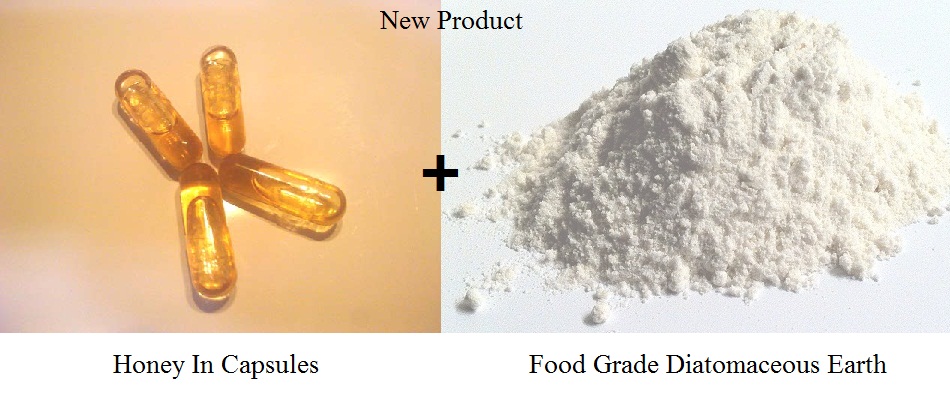
You can now order this Awesome New Product!
What are your favorite uses for diatomaceous earth? Leave a comment and share your experience!
